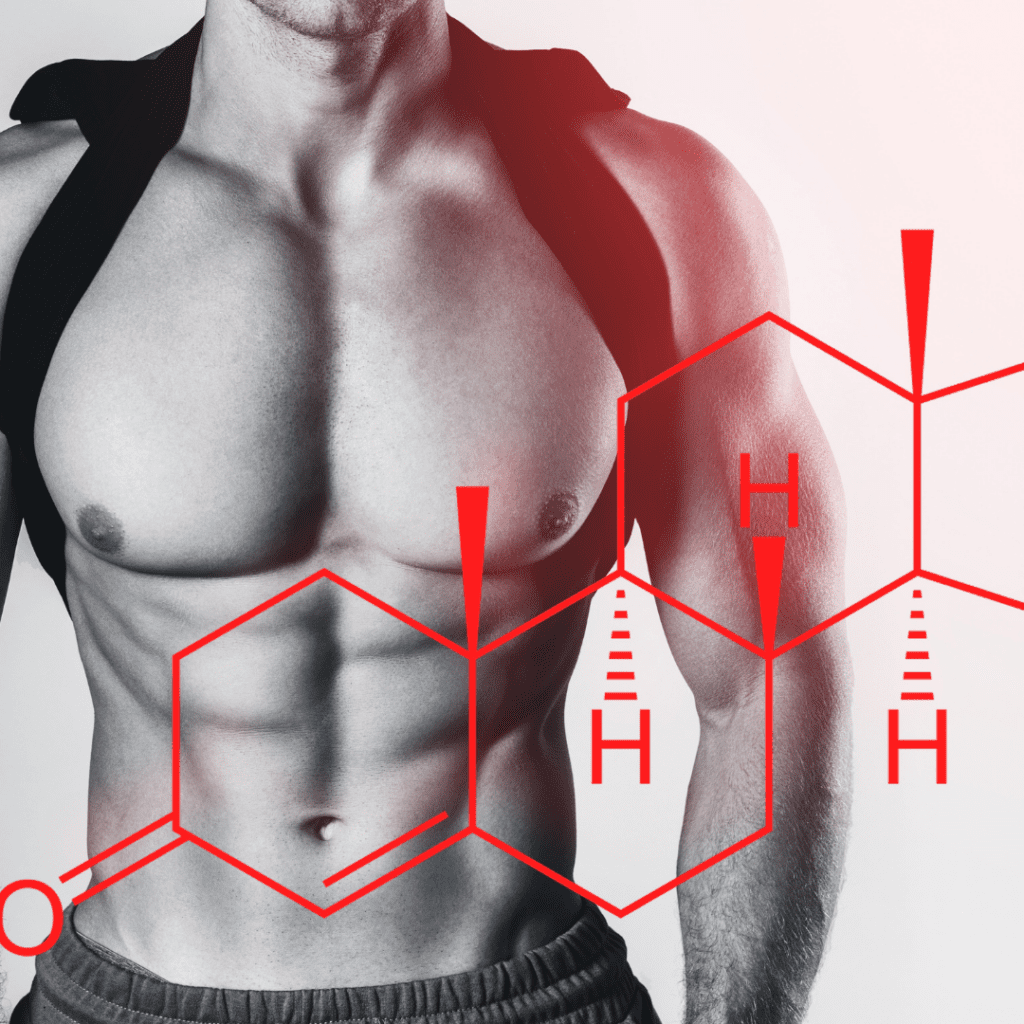Testosterone – things you should know about it
Testosterone builds muscle and makes you more masculine – at least most of the time. It is also true that testosterone, especially testosterone deficiency, is often misunderstood.
Testosterone and stress
Actually, testosterone is not essential when you are under stress. We need the stress hormone cortisol for the attack-flight response. At least, that is what some studies have shown. But high pressure – and high cortisol – is linked to low testosterone.
However, there is very little evidence that stress lowers testosterone and even less evidence that reducing stress increases testosterone. Apart from that, we know that acute and chronic stress affects the body, from low libido to exhaustion and depression.
The stress hormone cortisol and the sex hormone testosterone are antagonists. Hence the theory that stress can lead to infertility and loss of libido in men by inhibiting testosterone. Hormone experts speak of a cortisol-testosterone hormone axis. Acute stress causes high levels of cortisol and a significant drop in testosterone. Researchers believe this hormonal response prepares the body to escape danger.
High levels of stress in guinea pigs resulted in high cortisol, low testosterone, and increased anxiety. Interestingly, after testosterone replacement therapy, the fear behaviour disappeared.
Symptoms that occur with stress and low testosterone include:
• Sexual disinterest
• Fatigue
• Sleep disorders
• Depressions
• Lack of energy and interests
• irritability
It is impossible to tell whether the symptoms are due to stress or low testosterone levels. In addition, a healthy testosterone level has a wide range of values and changes over the course of the day. It is a common belief that low testosterone levels cause these common symptoms. But many older men have low testosterone levels and no symptoms at all. Given these unclear relationships, it is a good idea not to worry about testosterone when you are under stress.
The following measures – even without testosterone – reduce stress and improve sexual health:
• Exercise regularly.
• No smoking.
• Avoid too much alcohol and caffeine.
• Do not use medication to relieve stress.
• Eat healthily.
• Get enough sleep.
• Learn relaxation techniques.
• Set realistic goals.
• Ask for help if you need it.
If you are overweight and have erectile dysfunction, weight loss is a good idea. In obese men with type 2 diabetes who dieted for eight weeks, erections and sexual desire improved. In the eight weeks, her waist circumference and weight dropped by about five to ten per cent.
Testosterone – day and night
Testosterone follows the sleep-wake cycle. It is highest in the early morning between 7:00 and 10:00 and lowest in the evening. The high values in the early morning can lead to better training and a little more concentration – also more drive to get things done
Testosterone – body and soul
While we associate sufficient testosterone with muscle growth and libido, there is also a link between low testosterone and depression and other mood disorders and even early memory loss and dementia, including brain fog – difficulty concentrating and motivating https://www.praxis-psychologie -berlin.de/tag/brain-fog/.
Testosterone therapy can make men with testosterone deficiency more psychologically stable. They are more energetic and focused and have better memories. Even if the science behind it is still on shaky feet, this is a common experience in practice.
Testosterone types
Men make testosterone, and women make estrogen, right? Not quite.
There are three types of testosterone.
(1) free testosterone that is readily available to the cells. The other two types of testosterone (and most of the testosterone in your blood) are bound to proteins called albumin or sex hormone-binding globulin (SHBG).
(2) In addition to free testosterone, the body also has albumin-bound testosterone available. These two types of testosterone are known as bioavailable testosterone-
(3) SHBG-bound testosterone – is blocked by binding and without hormonal effects for the body. SHBG increases as men get older, and so does SHBG-bound testosterone, so men may lose only part of their testosterone as they get older. A blood test can help determine if specific symptoms are actually due to low-level testosterone.
Testosterone – hormone replacement therapy
When anabolic steroid abuse occurs, athletes with normal testosterone levels inject steroids. But when you have low testosterone levels, replacement therapy can improve your quality of life. So testosterone replacement means increasing testosterone levels from a low to an average level, like low thyroid hormone or low insulin.
Testosterone – a man’s thing
Not quite. There is research into the relationship between testosterone changes and stress in women. Individual hormone levels under pressure varied greatly in direction and extent. So there is no general increase in testosterone levels under stress in women.
There are interactions between stress and testosterone in both sexes and, in addition, influences of the gender role of masculinity. Testosterone is also a biological marker for striving for dominance, which protects people against stress. In any case, men with high testosterone were better able to cope with the effects of threats to their manhood. In this situation, they produced significantly less stress hormone cortisol than men with low testosterone. Men experience a threat to their gender role comparatively quickly – through verbal abuse or experienced weaknesses and inadequacies. Ironically, men with low levels of dominance and status striving seem particularly vulnerable to negative feedback about their masculinity. Perhaps that’s because men with low testosterone are most likely to receive feedback challenging their manhood. Then they may experience their gender role as a burden. So back to square one with testosterone stress…
Sources:
Caswell, T. A. et al.: Testosterone and Men’s Stress Responses to Gender Threats. Psychology of Men & Masculinity 15(1):4 DOI:10.1037/a0031394.
Iliade, Chris: Can Stress Affect Low Testosterone?
Some symptoms of low T are also symptoms of stress. Find out how stress and low T may be linked and what you can do about it.
Radding, Ben: 4 Things Your Doctor Wants You To Know About Testosterone
From the best time of day to work out to what replacement therapy actually means.
Esquire, Jul 7, 2021.






